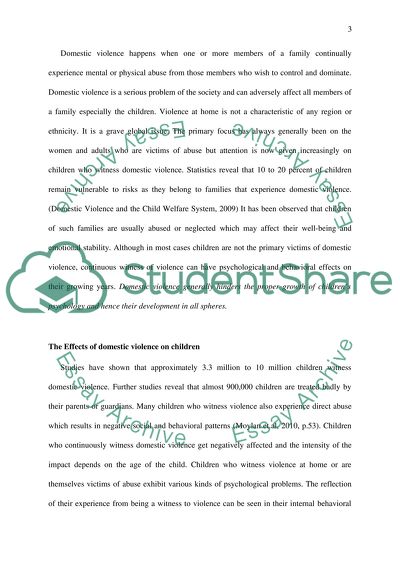Cite this document
(“Effects of Domestic violence on children Research Paper”, n.d.)
Effects of Domestic violence on children Research Paper. Retrieved from https://studentshare.org/psychology/1451721-domestic-violence-as-a-form-of-child-abuse
Effects of Domestic violence on children Research Paper. Retrieved from https://studentshare.org/psychology/1451721-domestic-violence-as-a-form-of-child-abuse
(Effects of Domestic Violence on Children Research Paper)
Effects of Domestic Violence on Children Research Paper. https://studentshare.org/psychology/1451721-domestic-violence-as-a-form-of-child-abuse.
Effects of Domestic Violence on Children Research Paper. https://studentshare.org/psychology/1451721-domestic-violence-as-a-form-of-child-abuse.
“Effects of Domestic Violence on Children Research Paper”, n.d. https://studentshare.org/psychology/1451721-domestic-violence-as-a-form-of-child-abuse.


